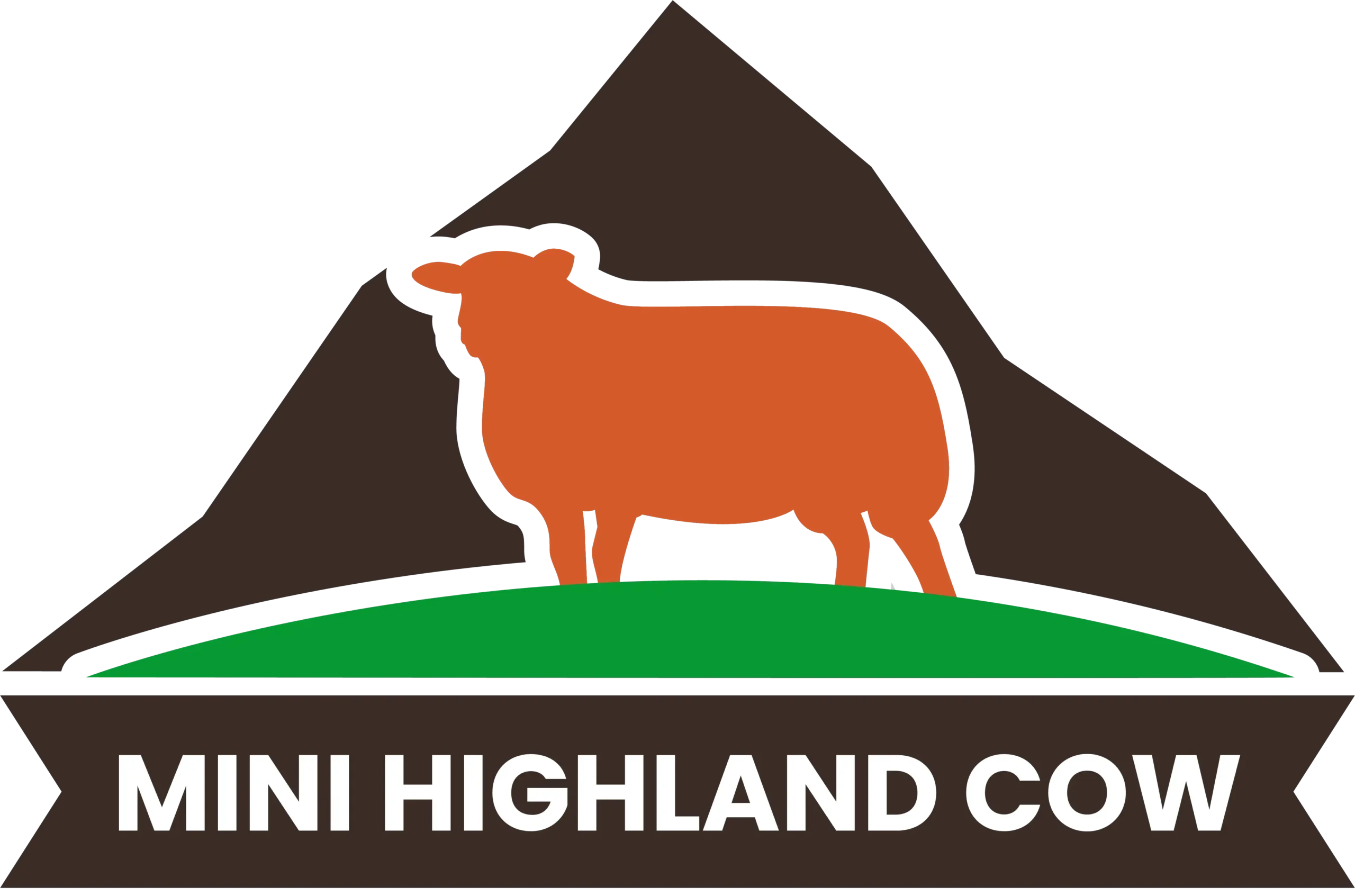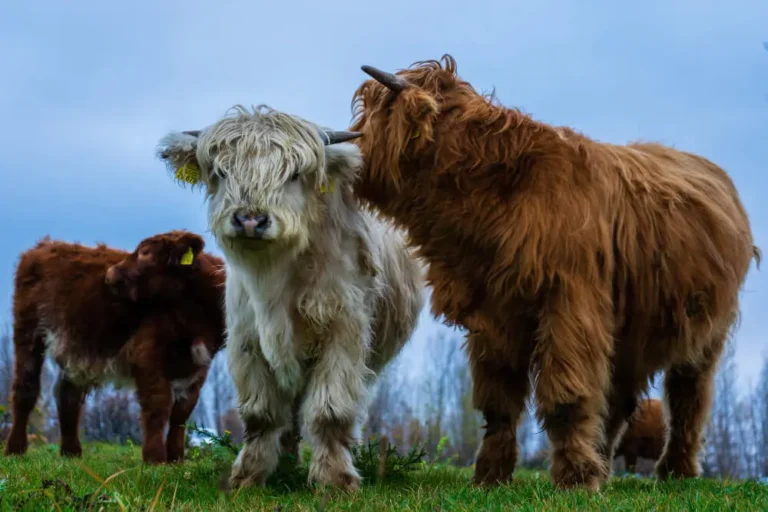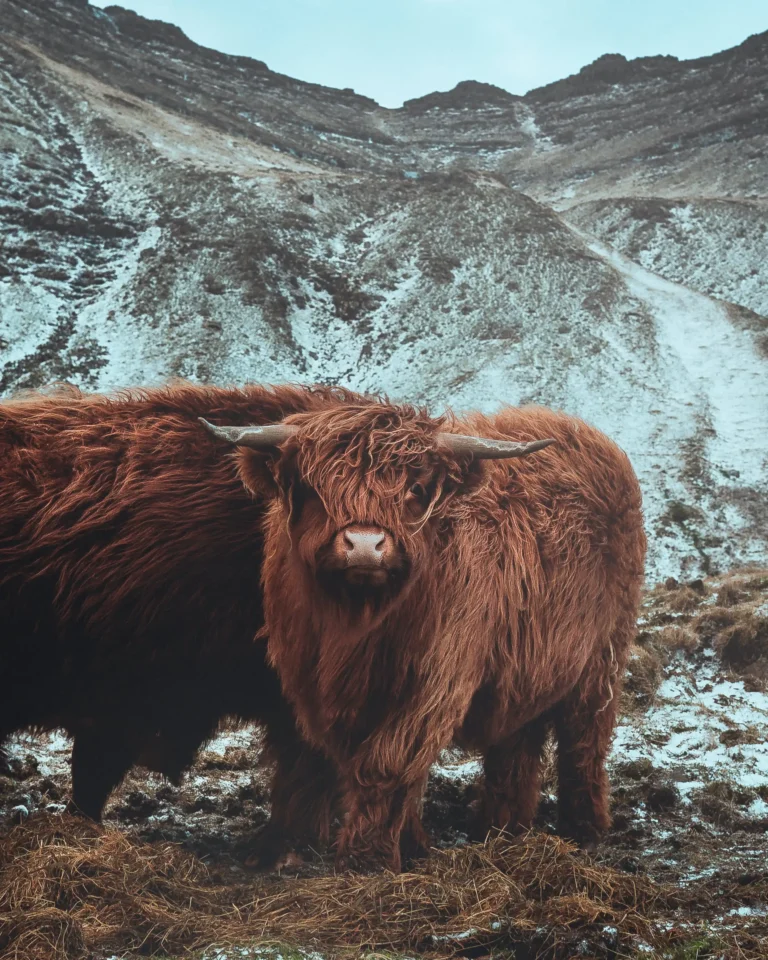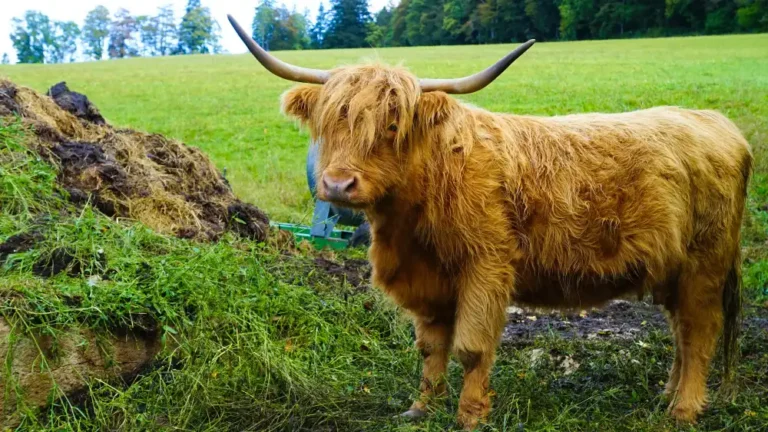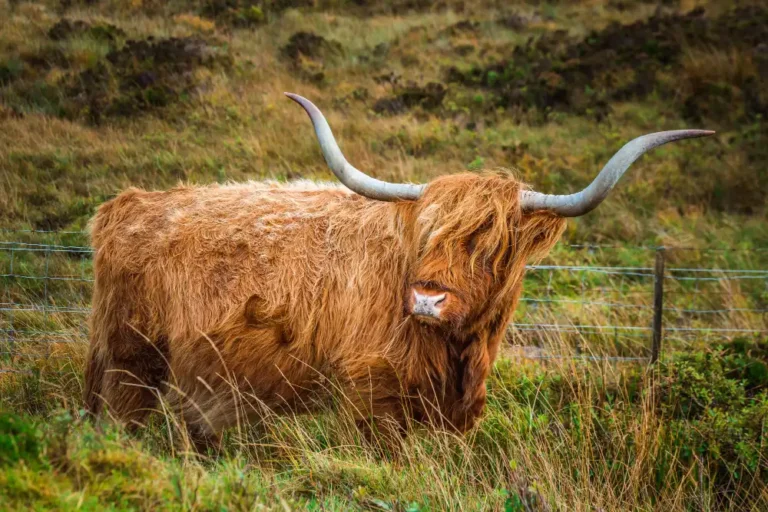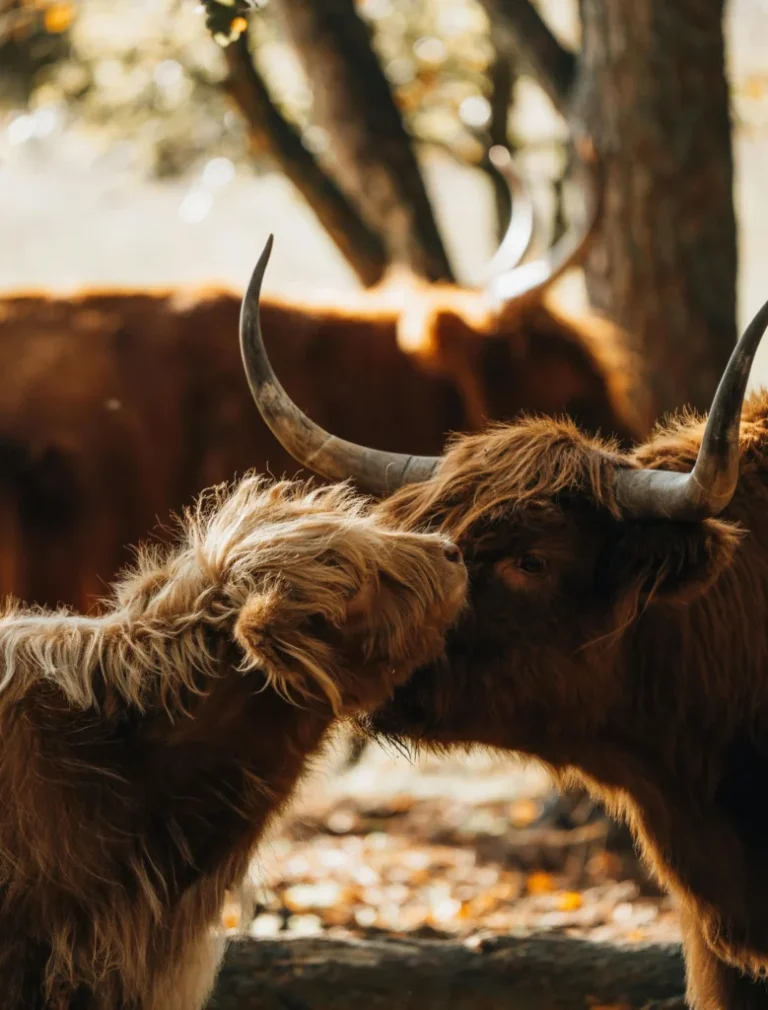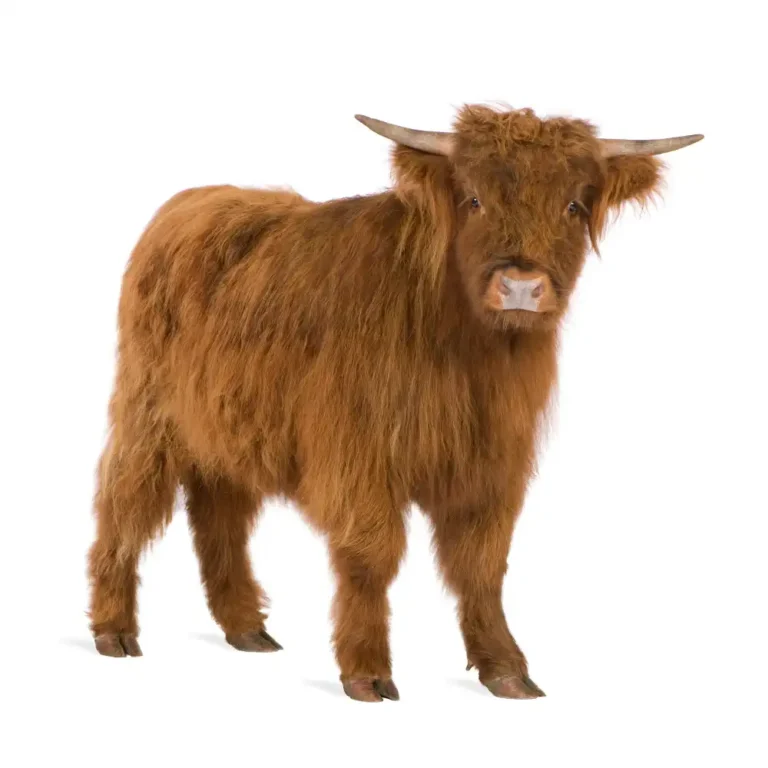Mini Highland Cows as Pets: Benefits and Considerations
When we think of pets, dogs, cats, or even rabbits might come to mind. But for those looking for a unique and rewarding experience, mini Highland cows have emerged as an intriguing option. These adorable, pint-sized versions of the traditional Scottish Highland cattle offer a blend of charm and practicality.
In this article, we explore the various aspects of keeping mini Highland cows as pets, delving into their benefits, requirements, and considerations to bear in mind.
What are mini Highland cows?
Mini Highland cows are like the smaller siblings of regular Highland cattle. They have the same long, fluffy hair and big horns but are smaller, making them easier to handle and needing less room. These little cows are still challenging and friendly, just like the bigger ones. People often have them as cute pets or use them for small farms because they are easier to care for and look unique.
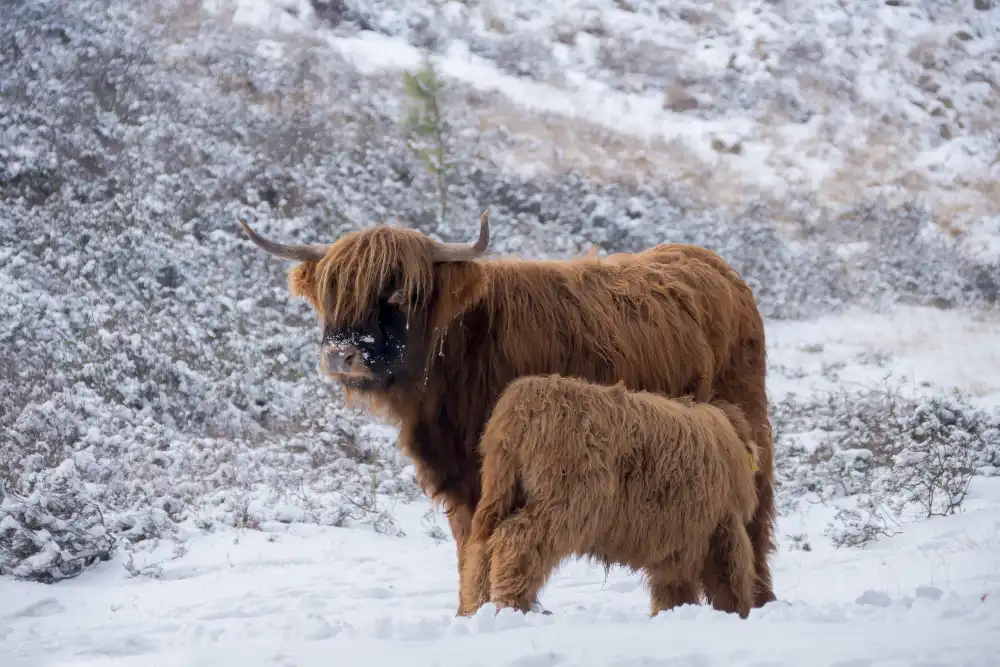
Origins and history
Mini Highland cows are a smaller variant of the Highland cow, a breed known for its long, woolly fur and majestic horns. Originating from the Highlands of Scotland, these cows are bred significantly smaller than their standard counterparts, making them more suitable for private ownership. Despite their reduced size, they retain the breed’s distinctive features and personality traits.
What are the benefits of keeping mini Highland cows as pets?
Here are the benefits of keeping mini Highland cows as pets:
When fully grown, Mini Highland Cows need primary care like other farm animals, including shelter, nutrition, and veterinary care. Their easygoing nature and ability to thrive in diverse climates make them one of the safest choices for those new to cattle farming.
However, potential owners should know the cons of owning these animals. They still require a commitment to proper care and maintenance, and their needs should be recognized due to their smaller size. This smaller frame requires less space to move and graze, making it ideal for smaller farms or those with limited acreage.
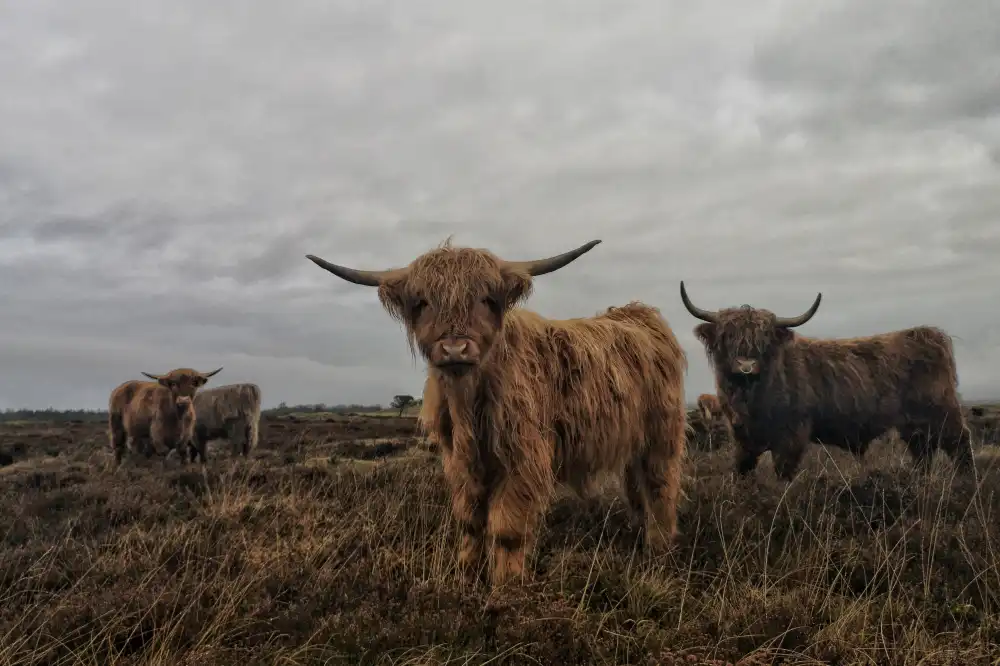
What type of environment or habitat is ideal for them?
These miniature cattle flourish in a spacious and natural environment. To ensure ample space, they need open pastureland for grazing, ideally with a few acres per animal. Shelter from extreme weather, such as a barn or a shed, is necessary for their well-being.
These dairy cows also benefit from access to trees or bushes for natural shade and shelter. Proper fencing is crucial to keeping them safe and within their designated grazing area. Mini Highland cows, known for their easy calving and muscular frame, are becoming increasingly popular as farm animals.
They are a petite breed, similar to Dexter cattle in frame size but distinct in their long, shaggy coats, reminiscent of Galloway cattle. These cattle are highly adaptable to various climates, making them versatile for different farming environments.
What do mini Highland cows eat?
These miniature highland cattle primarily graze on grass, efficiently managing pastures. In addition to fresh grass, hay can be fed, especially during the winter or when grass is scarce. Their diet should be supplemented with mineral salts and clean water for hydration and nutrition. It’s essential to avoid overfeeding, as mini Highland cows can gain weight quickly, so their diet should be monitored for balance.
What is the typical lifespan of a mini Highland cow?
The typical lifespan of a mini Highland cow ranges from 15 to 20 years with proper care and management. This longevity is similar to standard Highland cattle’s and is notably longer than many other domestic livestock breeds. Factors like diet, living conditions, and regular veterinary care can significantly impact their health and lifespan.
What are common health issues, and how can they be prevented or treated?
Common health issues in mini Highland cows, including those with the petite size of miniature Belted Galloways, often involve foot problems and parasitic infections. Regular hoof care and parasite control are crucial in preventing these issues. Ensuring a balanced diet, not over-rich in milk, is vital in making them suitable for a range of owners, especially considering their endearing nature. Their safest and most effective treatments often involve routine veterinary check-ups and adherence to recommended health protocols.
Are there any legal restrictions or zoning laws concerning keeping mini Highland cows as pets?
Legal restrictions or zoning laws concerning keeping these smaller cows as pets can vary significantly depending on the location. Most urban and some suburban areas typically have stringent regulations or outright bans on keeping livestock, including mini cattle.
Rural areas are generally more permissive, but even there, specific rules about the number of animals, the property size, and proper fencing might apply. Potential owners need to check with local zoning offices and homeowners’ associations to understand the regulations in their area.
Compliance with these laws is crucial to ensuring the animals’ well-being and adherence to local standards.
What permits or documentation might be needed?
Several permits and documents are often required when considering keeping mini Highland cows as pets. Firstly, a livestock permit might be necessary, as many local governments regulate the keeping of farm animals.
Land use and zoning approvals are also crucial, particularly in residential areas where livestock is only sometimes allowed. Maintaining updated health and veterinary records, including proof of vaccinations and treatments, is essential for the well-being of the animals and is often required by law.
Furthermore, registration documents from recognized cattle associations might be needed for purebred animals to verify their lineage. Lastly, it’s essential to familiarize oneself with and adhere to any specific local or state regulations about the ownership and care of farm animals.
Breeding and Reproduction
The breeding and reproduction of mini Highland cows involve a selective process, focusing on maintaining their small stature and robust health. Depending on specific breeding goals and conditions, breeders typically opt for either natural mating or artificial insemination. These miniature cows undergo a gestation period similar to standard cattle, around 283 days, leading to the birth of usually one, occasionally two, calves.
Postnatal care is crucial, emphasizing nutrition and health monitoring for the mother and her offspring. This careful and managed breeding process is essential to preserving the unique characteristics of the mini Highland cow breed.
What are the considerations for those looking to breed them?
For those considering breeding mini Highland cows, assessing their genetic health first to prevent hereditary issues is essential. Knowledge and experience in cattle breeding are essential for successful and ethical practices. Access to a veterinarian for regular health checks and assistance during breeding and calving is crucial.
Additionally, potential breeders should have a clear plan for the care and placement of calves to ensure their well-being.
Is a Mini Highland Cow Right for You?
Deciding if a Mini Highland Cow is right for you is a personal decision that depends on various factors. If you have ample outdoor space, are prepared for the commitment of daily care, and can adhere to local zoning laws, then a Mini Highland Cow could be a good fit. These animals require significant time, resources, and understanding of livestock care.
However, if your living situation, lifestyle, or local regulations are not conducive to keeping such animals, there might be better choices. Ultimately, the decision should be based on carefully considering your ability to meet their needs and the legal requirements of your area.
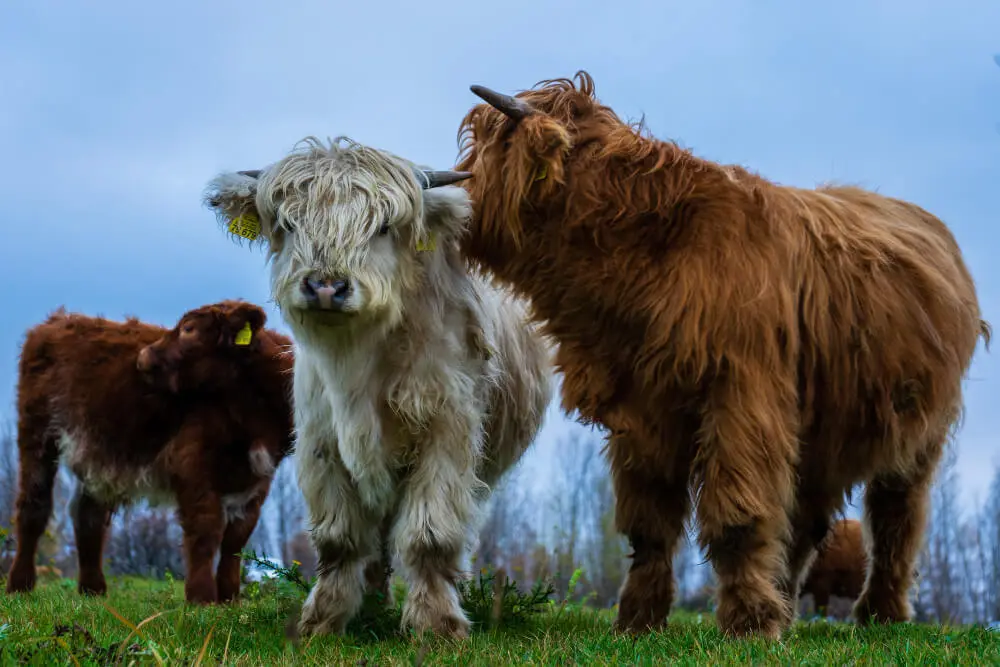
Conclusion
Mini Highland cows offer a unique and enriching experience for those seeking an alternative to traditional pets. They require ample space, proper care, and a commitment to their well-being. While they bring numerous benefits and are adaptable to various environments, prospective owners must consider local legal restrictions and ensure they are prepared for a long-term commitment. These charming and gentle creatures can be a delightful addition to the right home or farm, offering companionship, land management benefits, and a touch of sustainable living.
